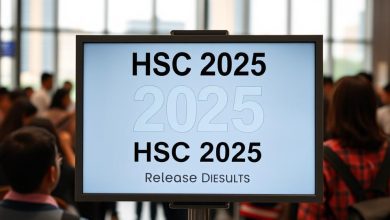Who Controls the UK Education System?

The UK’s education governance is a complex and multifaceted entity, with various stakeholders and governing bodies playing crucial roles. Understanding who controls the UK education system is essential for grasping the intricacies of educational policies and reforms.
The UK education system is characterized by a mix of centralized and decentralized decision-making processes. Various government departments, agencies, and local authorities are involved in shaping educational policies and practices.
Key Takeaways
- The UK education system is governed by multiple stakeholders.
- Education governance involves both centralized and decentralized decision-making.
- Understanding the control of the UK education system is crucial for analyzing educational policies.
- Various government departments and agencies play key roles in shaping educational policies.
- The complexity of the UK education system affects educational reforms.
The Structure of UK Education Governance
The UK education system is governed through a combination of central and devolved authorities. This governance structure allows for both national policies and regional adaptations.
Sign Up With Binance: Click Here
Central Government’s Role in Education
The central government plays a significant role in shaping education policy across the UK. It is responsible for setting national standards and providing funding for education. The Department for Education is a key player in this process, overseeing various aspects of education.
Devolved Powers in Scotland, Wales, and Northern Ireland
Scotland, Wales, and Northern Ireland have devolved powers, allowing them to make decisions on education policy within their regions. This devolution enables these countries to tailor education policies to their specific needs. For instance, Scotland has its own curriculum and assessment system, distinct from the rest of the UK.
How to Understand Regional Differences
Understanding regional differences in education governance is crucial for grasping the overall UK education system. While there are national frameworks, regional variations exist due to devolved powers. As
“Education is a devolved matter, allowing each country within the UK to develop its own education system.”
, highlighting the flexibility within the governance structure.
Who Controls the Education System in the UK?
The UK’s education system is controlled by a complex network of entities, with multiple bodies playing crucial roles. “The governance structure is multifaceted, involving both central government and local authorities,” as noted by education experts.
Read More:- Binance Crypto Box Code– Earn Free Crypto Box get free to 5$
Read More: Binance Word of the Day Answers: Margin Trading Theme
Department for Education: Powers and Responsibilities
The Department for Education is a key player in shaping the UK’s education policy. It is responsible for setting national standards, curriculum guidelines, and ensuring the overall quality of education. The Department’s powers include allocating funding to schools and implementing educational reforms.
Ofsted and Quality Assurance Mechanisms
Ofsted, or the Office for Standards in Education, plays a vital role in maintaining educational standards. It conducts regular inspections of schools to assess their quality and effectiveness. Ofsted’s reports provide valuable insights into a school’s performance, helping parents make informed decisions.
Ofsted’s key responsibilities include:
- Inspecting schools and educational institutions
- Evaluating teaching quality and student outcomes
- Publishing reports on school performance
Local Education Authorities and Their Functions
Local education authorities are responsible for managing education at the local level. Their functions include allocating resources, supporting schools, and ensuring that children receive appropriate education. They also play a role in addressing issues related to school admissions and special educational needs.
As Nick Gibb, former Minister of State for School Standards, noted, “Local authorities have a critical role in ensuring that schools provide high-quality education.” This highlights the importance of local education authorities in the overall governance of the education system.
School-Level Governance and Decision Making
At the heart of the UK’s education system are the schools, where governance and decision-making play a pivotal role. The governance structure at the school level is complex, involving various stakeholders and governing bodies that work together to ensure the smooth operation of educational institutions.
Academy Trusts vs. Maintained Schools: Key Differences
Academy trusts and maintained schools represent two different governance models within the UK education system. Academy trusts are independent schools that operate outside local authority control, receiving funding directly from the government. In contrast, maintained schools are overseen by local authorities. This distinction significantly impacts their autonomy, funding, and accountability mechanisms.
| Characteristics | Academy Trusts | Maintained Schools |
|---|---|---|
| Autonomy | High | Moderate |
| Funding Source | Direct Government Funding | Local Authority Funding |
| Oversight | Department for Education | Local Authority |
How School Governing Bodies Operate
School governing bodies are responsible for the strategic direction of schools, ensuring they meet their educational objectives. These bodies comprise various stakeholders, including parents, staff, and community members, who work together to make informed decisions about school policies and practices.
Understanding the UK System from an American Perspective
For educators and policymakers in the United States, understanding the UK’s school governance system can provide valuable insights into different approaches to educational management. The UK’s system highlights the importance of balancing autonomy with accountability, a theme that resonates with ongoing debates in the US about school governance and reform.
Conclusion: Navigating the Complexities of UK Education Control
The UK education system is governed by a complex structure, with control distributed among various entities. Understanding who controls the education system in the UK requires insight into the roles of central government, devolved administrations, and local authorities.
The Department for Education plays a crucial role in shaping national education policy, while Ofsted ensures quality assurance through rigorous inspections. Local education authorities and school governing bodies also have significant responsibilities in implementing policies and overseeing school operations.
The UK education governance structure is further complicated by the presence of academy trusts and maintained schools, each with distinct characteristics. By grasping these nuances, educators, policymakers, and stakeholders can better navigate the intricacies of the UK education system and work together to improve educational outcomes.
Binance 9 Letter Word of the Day Today’s Answers
Ultimately, the education governance structure in the UK is designed to balance national standards with regional autonomy, allowing for diverse approaches to education that cater to different needs and contexts.
FAQ
What is the role of the Department for Education in the UK education system?
The Department for Education is responsible for setting the overall direction of education policy in England, including curriculum standards, school accountability, and teacher training.
How does Ofsted impact the quality of education in UK schools?
Ofsted, or the Office for Standards in Education, conducts regular inspections of schools to ensure they meet certain standards, providing a quality assurance mechanism that helps maintain high educational standards.
What are the key differences between academy trusts and maintained schools in the UK?
Academy trusts are publicly funded schools that operate independently of local authorities, whereas maintained schools are controlled by local authorities; academy trusts have more autonomy in terms of curriculum and finances.
How do local education authorities influence education in their respective areas?
Local education authorities are responsible for ensuring there are sufficient school places, providing support for schools, and overseeing the distribution of funding, thus playing a crucial role in shaping local education.
What is the significance of devolved powers in Scotland, Wales, and Northern Ireland regarding education?
Devolved powers allow Scotland, Wales, and Northern Ireland to make their own decisions on education policy, resulting in differences in curriculum, assessment, and governance structures across these regions.









